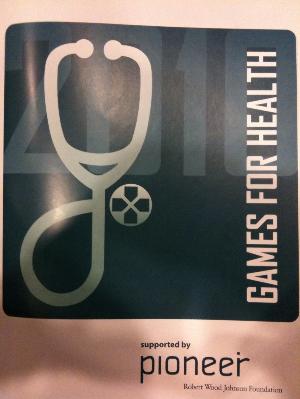December 26th, 2010 by Glenn Laffel, M.D., Ph.D. in Better Health Network, Health Tips, News, Research
3 Comments »

 Flashbacks are vivid, recurring, intrusive, and unwanted mental images of a past traumatic experience. They are a sine qua non of post-traumatic stress disorder (PTSD). Although drugs and cognitive behavioral interventions are available to treat PTSD, clinicians would prefer to utilize some sort of early intervention to prevent flashbacks from developing in the first place.
Flashbacks are vivid, recurring, intrusive, and unwanted mental images of a past traumatic experience. They are a sine qua non of post-traumatic stress disorder (PTSD). Although drugs and cognitive behavioral interventions are available to treat PTSD, clinicians would prefer to utilize some sort of early intervention to prevent flashbacks from developing in the first place.
Well, researchers at Oxford University appear to have found one. Remarkably, all it takes is playing Tetris. Yes, Tetris!
The team responsible for the discovery was led by Emily Holmes. The writeup appears in the November issue of PLoS ONE. Holmes and colleagues had reasoned that the human brain has a limited capacity to process memories, and that memory consolidation following a traumatic experience is typically complete within six hours after the event. Holmes’ team also knew that playing Tetris involved the same kind of mental processing as that involved with flashback formation. So they figured if they had people play Tetris during that six-hour window after the traumatic event, it might interfere with memory consolidation of the traumatic experience. That, in turn, would reduce or eliminate the flashbacks. The idea worked like a charm. Read more »
*This blog post was originally published at Pizaazz*
August 15th, 2010 by Berci in Better Health Network, Health Policy, News, Research
No Comments »

A report on the future of health was presented to the United Nations Children’s Fund (UNICEF) by PSFK, a trends research and innovation company. It features a wide range to topics including distant learning, diagnostics, gaming for health, offline web, DIY checkup, and many others:
(Hat Tip: iMedicalApps)
*This blog post was originally published at ScienceRoll*
May 26th, 2010 by Medgadget in Announcements, Better Health Network, News, Research
No Comments »

 It’s time for the 6th annual Games for Health conference. The conference, in partnership with the Robert Wood Johnson Foundation, provides a forum for experts in the fields of video games, healthcare, and science to come together and share the latest and greatest in health-related video game news and research.
It’s time for the 6th annual Games for Health conference. The conference, in partnership with the Robert Wood Johnson Foundation, provides a forum for experts in the fields of video games, healthcare, and science to come together and share the latest and greatest in health-related video game news and research.
From their promotional pamphlet:
Because digital games can actively engage and challenge people of all ages, they have the ability to help individuals manage chronic illnesses, support physical rehabilitation, pursue wellness goals and contribute to changes in health behaviors. Public health leaders, doctors and nurses, rehabilitation specialists, emergency first responders and other health professionals are also using games and game technologies to advance their skills and enhance how they deliver care and services. Games are even beginning to mine the wisdom of the crowds to forge critical new discoveries in biology and genomics.
The acceptance of games as a valuable health management and training method, the popular success of consoles like the Nintendo Wii, and the growth of smartphone game applications indicate that there is tremendous potential for continuing to move health and behavior change activities beyond clinical settings and the classroom and into consumers’ home, work, social and recreational spaces.
We’ll be reporting throughout the event (May 25-27). Stay tuned for info on the PS3 Move, a Wii laparoscopic trainer, and more.
*This blog post was originally published at Medgadget*
 Flashbacks are vivid, recurring, intrusive, and unwanted mental images of a past traumatic experience. They are a sine qua non of post-traumatic stress disorder (PTSD). Although drugs and cognitive behavioral interventions are available to treat PTSD, clinicians would prefer to utilize some sort of early intervention to prevent flashbacks from developing in the first place.
Flashbacks are vivid, recurring, intrusive, and unwanted mental images of a past traumatic experience. They are a sine qua non of post-traumatic stress disorder (PTSD). Although drugs and cognitive behavioral interventions are available to treat PTSD, clinicians would prefer to utilize some sort of early intervention to prevent flashbacks from developing in the first place. 




 It’s time for the 6th annual
It’s time for the 6th annual 







